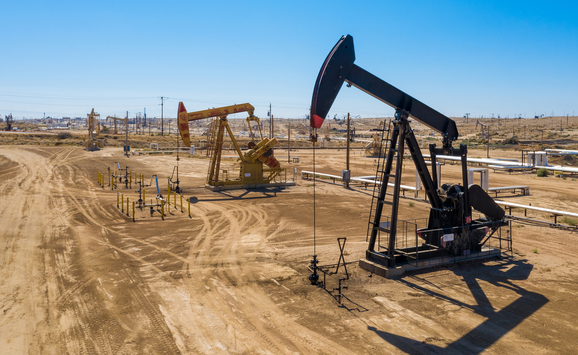As Maryland weighs a ban on hydraulic fracturing, or fracking, two opinion pieces published in the Washington Post (available here and here) present diametrically opposed views on the topic. Although the two pieces argue that science is on their side, they each cherry pick from existing research, distorting the impacts of fracking, rather than provide solid evidence that can help inform Maryland residents and policymakers. From our ongoing review of the existing research, we have a more nuanced take: namely, that fracking brings with it a mix of benefits, risks, and uncertainties. While this view may not generate rousing headlines, we believe that policymaking is best served by dispassionate analysis.
To avoid confusion, it’s important to understand that “fracking” refers to a process to release gas and oil in tight rock formations, not a descriptor of the entire development process. For example, one of the two recent op-eds repeats the common claim that “there has never been a proven case in which fracking chemicals seeped into drinking water.” There are a number of problems with this claim, but perhaps the most important is that oil and gas activities other than hydraulic fracturing (such as chemical or wastewater spills, failures in well casing, and more) have led to pollution in hundreds of well-documented cases in Pennsylvania, and certainly more nationwide.
Another key issue is that neither side of the polarized fracking debate accurately characterizes the risks. Considering health risks, the authors of these two op-eds each cherry pick a handful of studies to either show a definitive increase in the risk of health impacts or argue that there are no health concerns. In reality, the breadth of the research has shown limited evidence for certain health impacts for those living close to oil and gas production sites.
Indeed, several epidemiological studies have found evidence of increased risks of certain birth outcomes, asthma, and cancer. However, most of these studies have methodological limitations or lack the data to definitively state that the health impacts are, in fact, caused by exposure to oil and gas activities. Furthermore, the evidence for some impacts, such as birth outcomes, varies across studies. While one study finds increases in the rates of premature birth for those living closer to natural gas wells, another finds no statistically significant effect on premature birth rates. What the existing research does agree on is that any health impacts dissipate within 1, 2, or sometimes 5 kilometers of a well—implying that tougher setback requirements or other steps could perhaps be taken, rather than an outright ban.
Mostly, however, these mixed outcomes tell us that more study is needed before making any blanket statements about the health impacts of shale development. It is also important to note that a lack of data does not imply that there are no impacts. This lack of information may lead opponents to argue that any uncertainty over risk is unacceptable, while proponents may take a “see no evil” approach, arguing that the lack of evidence translates into a lack of risk.
And let’s not forget the real benefits to consider. For example, many studies have shown substantial boosts in economic activity for oil and gas producing regions, though these benefits can be volatile as oil and gas prices rise and fall. (For two examples, see the Hardy et al. chapter on northeastern Pennsylvania counties in the Economics of Unconventional Shale Gas Development; and Bartik et al. [2017]).
A reasoned argument over whether to ban oil and gas development would take into account these real benefits, real risks, and remaining uncertainties over issues including health impacts, wastewater spills, and earthquakes triggered by the disposal of oil and gas wastewater. For the millions of people living in regions where development occurs who deal with these trade-offs every day, the ideologically rigid arguments seen in these recent op-eds may ring hollow. Indeed, survey research has shown that the closer one lives to oil and gas producing regions, the less likely their opinion is to be shaped by simple partisan affiliation.
Another key consideration is that oil and gas development, like most economic activities, creates winners and losers. In particular, homeowners who own their subsurface rights may benefit from royalties while others, such as renters or those without subsurface mineral rights, will experience the negative aspects of development (such as truck traffic, localized air pollution, noise, light pollution, crowding, and more) without compensation.
We recognize that calling for nuance in the heated debate over fracking may be something of a Sisyphean endeavor. While sensational headlines and Twitter-ready screeds may be the order of the day, our hope is that there is still a place for thoughtful decisionmaking. And with a topic like fracking, where the science is complicated and the trade-offs are substantial, Marylanders deserve better information when considering a ban.
The views expressed in RFF blog posts are those of the authors and should not be attributed to Resources for the Future.






